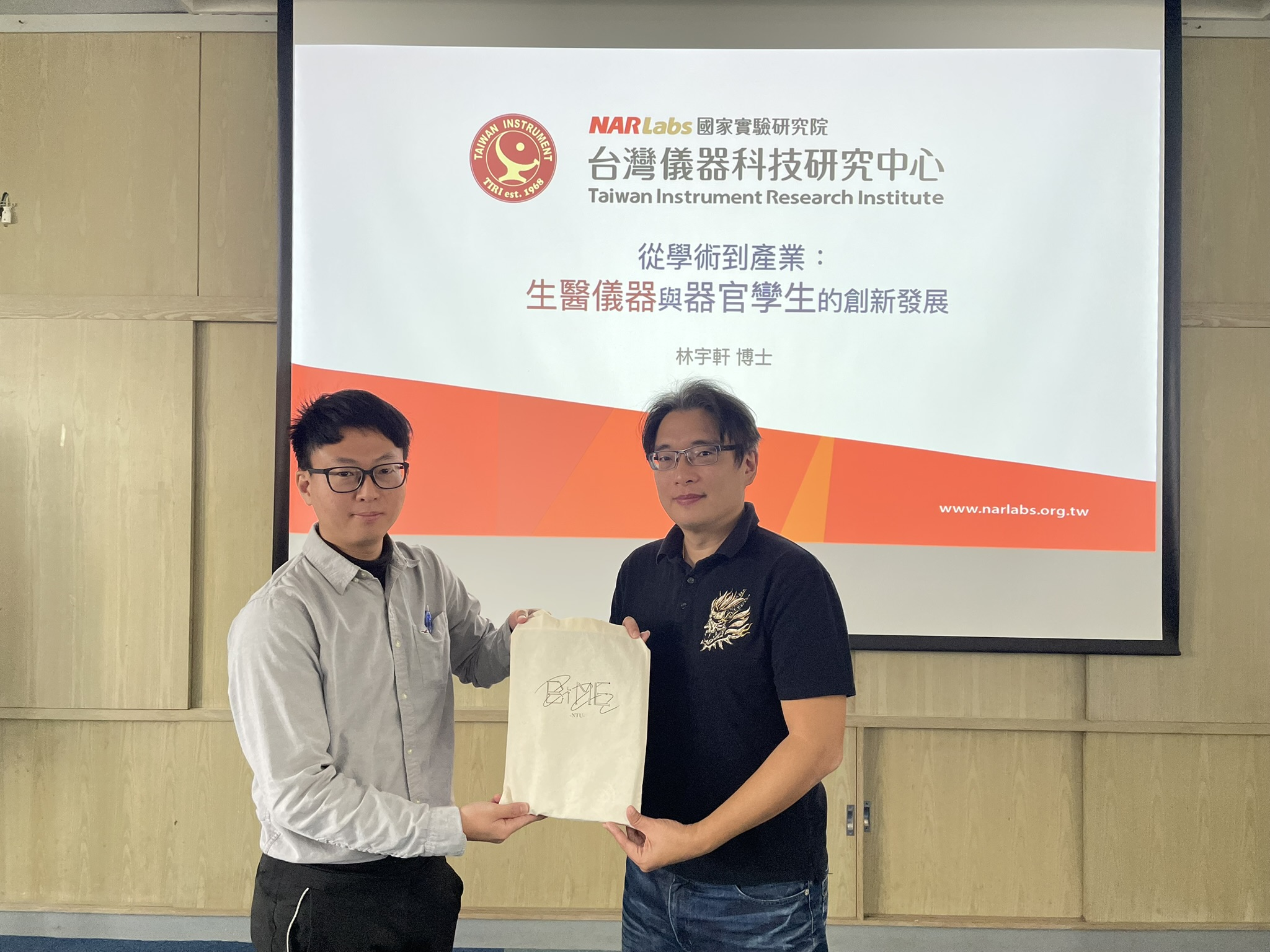
在演講中,講者聚焦於智慧生醫領域,深入探討了生醫晶片與系統整合技術的
發展。演講中提到,智慧生醫的核心在於將先進的生物感測與 3R 策略相結合,
推動精準醫療與個人化醫學的發展。具體技術方面,講者介紹了器官孿生技
術,如何利用微流控系統、3D 細胞培養以及動態流體培養,實現更真實的疾病
模型與藥物篩選平台。尤其是器官晶片的發展,在藥物測試與疾病預測方面具
有極大潛力。最後還提到學術與產業界的合作,從設計到標準化、再到臨床驗
證,是每一環節的精密協同。
此次演講讓我對生醫領域的發展有了更為清晰的認識,特別是在學術研究如何
實踐並轉化為具體的產業應用。過去所學的各種跨學科內容,無論是工程生生
物學、材料科學等,這些知識體系能夠在面對複雜挑戰時,提供創新的解決方
法。尤其是瞭解到研究從原型到商品化的每一環節時,才真切感受到學術研究
與產業實踐的緊密聯繫,並對自己未來的職業選擇有了更清晰的方向。這場演
講讓我看到了不同階段的角色選擇,如果偏愛學術,可以專注於研究階段;若
對產業發展更感興趣,則可以參與技術轉化與商業化過程。
撰寫者:碩士班學生 蔡知芸
In this lecture, the speaker focused on the field of intelligent biomedical technology, delving into the development of biomedical chips and system integration technologies. The speaker highlighted that the core of intelligent biomedicine lies in integrating advanced biosensing with the 3R strategy to drive the advancement of precision medicine and personalized healthcare.
On the technical side, the speaker introduced organ twin technology, explaining how microfluidic systems, 3D cell cultures, and dynamic fluidic cultivation can be utilized to create more realistic disease models and drug screening platforms. In particular, the development of organ-on-a-chip technology holds great potential for drug testing and disease prediction. Additionally, the lecture emphasized the collaboration between academia and industry, illustrating the precise coordination required at each stage—from design and standardization to clinical validation.
This lecture provided me with a clearer understanding of the development of the biomedical field, especially regarding how academic research can be translated into real-world industry applications. The interdisciplinary knowledge I have acquired, such as bioengineering and materials science, plays a crucial role in addressing complex challenges and fostering innovative solutions. Learning about the entire process from research prototypes to commercialization deepened my appreciation for the close connection between academic research and industrial practice, giving me a clearer sense of direction for my future career choices.
This lecture also shed light on the different roles available at various stages of the field—those who prefer academia can focus on research, while those more interested in industry can engage in technology transfer and commercialization.
Author: Master student: Chih-Yun Tsai